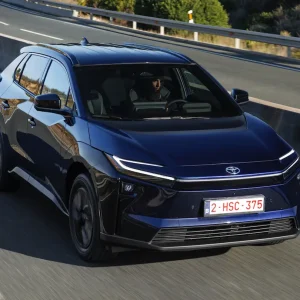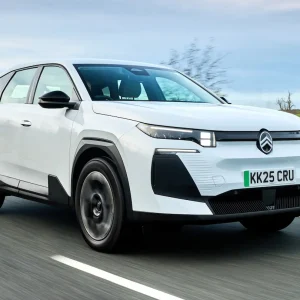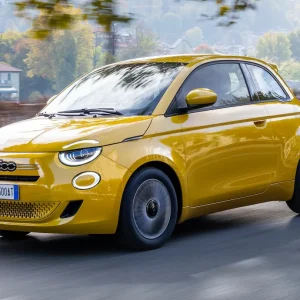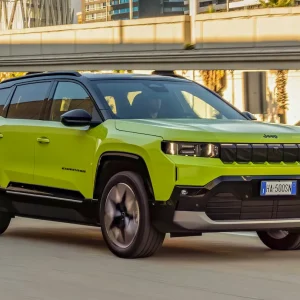This is the first car that will be offered with three different battery-related powertrains. The most popular, driven here will be the full hybrid, combining petrol engine with a small electric motor recharged through regeneration under deceleration – a la Toyota’s Prius – while also coming in October is a full electric model with a claimed range of 174 miles. Following in the second quarter of 2017 is a plug-in hybrid, with a range of around 30 miles before the 1.6 petrol engine kicks in.
This hybrid is expected to take around half of sales, and goes from £19,940-£23,540, costing £7200 less than the electric version, before the EV’s £4500 Government grant is taken into account.
The first thing to note with the Ioniq Hybrid is that the DCT gearbox makes for a much better powertrain than the Toyota Prius’s CVT transmission. The Hyundai doesn’t suffer from the Toyota’s issues of making lots of noise in relation to attempts at acceleration, and although the latest Prius is much improved, it’s still not at the Ioniq’s level.
Refinement is good and the 1.6-litre petrol engine’s gear-change is as subtle as any decent automatic, easing the argument that the switch to a hybrid is just as normal as picking petrol or diesel.
It’s fair to say the car’s performance isn’t particularly sparkling, but that’s not the major point of the Ioniq, which is a car at its best when driven sensibly and trying to make the most of the regenerative braking and electric running on light throttle. It’s a car that rewards a relaxed driving style.
Interior quality is good with plenty of nice soft-touch plastics, and equipment levels across the three grades are above expectations.
The entry SE trim offers 15-inch alloys, leather steering wheel, dual-zone climate control, rear parking sensors and camera, Bluetooth, USB socket and safety kit including autonomous emergency braking – which lowers insurance premiums – adaptive cruise control and lane keep assist. Step up to Premium spec and the £1800 cost brings satnav, heated front seats, the Apple Carplay or Android Auto systems, wireless phone charging and keyless entry, while the £1800 additional step to top spec Premium SE adds heated steering wheel and outer rear seats, ventilated leather front seats, auto wipers and front parking sensors. Metallic paint, and on the top spec Premium only, 17-inch alloy wheels that increase emissions by 13g/km to 92g/km, are the only items on the options list.
Rear space is decent for the lower medium sector, though the sweeping rear lines both slightly restrict rear headroom and the chunky rear pillar hampers visibility, as does the aerodynamic bar across the back window, as is the case with many of these low-emission models where such a move aids efficiency. The boot itself is shallow but comes in at 443 litres, again decent for the class. The electric version drops to 350 litres thanks to its larger battery, and figures have not yet been announced for the plug-in.
Hyundai has achieved a result with the Ioniq. Well priced and well-equipped, the hybrid should appeal to people looking to mitigate tax bills and any risk posed by increasing pressures on diesel models. Like all hybrids, it will likely prove less efficient than diesels on long motorway runs, but journey pattern-dependent, and depending on the whole life costs when they are finalised closer to the launch date, it’s certainly worth a look for anyone spending time in urban situations in particular.
Hyundai Ioniq Hybrid Premium SE 1.6 GDi |
|
| Model price range | £19,940-£30,740 |
| Fuel consumption | 83.1mpg |
| CO2 (tax) | 79g/km (15%) |
| BIK 20/40% per month | £59/£118 |
| Warranty | 5yrs/unlimited mls (8yr/125k mls for battery) |
| Boot space min/max | 443/1505 litres |
| Engine size/power | 1580cc/105hp + 44hp electric motor |





